Rob Bignell's Blog, page 268
March 5, 2016
Writing affirmation: Revising is my friend
Writers often 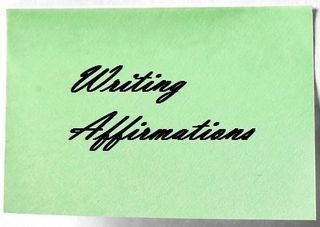 don���t like to revise. Some view it as drudgery and would rather work on that new story idea they came up with today. A small arrogant few don���t think there���s anyway to improve their work.
don���t like to revise. Some view it as drudgery and would rather work on that new story idea they came up with today. A small arrogant few don���t think there���s anyway to improve their work.
For most of us, though, there���s a real discomfort in looking back at what we���ve written. It���s not so much the embarrassing misspelling that slipped through but an honest fear that there���s a glaring plot gap, that the imagery just doesn���t make sense, that the characters are flat and dull. In short, we don���t like to realize how ���bad��� of a job we���ve done!
That discomfort is a good thing, though. It means you have high standards and want to improve. The challenge now is find ways to be a better writer, to not the fear of our own self-criticism to overwhelm us.
Revising is the supportive, guiding voice we need at such times.
If you can recognize errors you���re making, you soon will pay attention to them in future writing sessions and not make those mistakes. This means more productive writing sessions: the quality of your writing will go up, increasing your confidence as a writer; and the quantity of your writing will rise, for self-confidence boosts your willingness to write for longer periods and at a faster pace.
Think of revising as a good friend who listens and to you and with friendly candor guides you to success.
Professional Book Editor: Having your novel, short story or nonfiction manuscript proofread or edited before submitting it can prove invaluable. In an economic climate where you face heavy competition, your writing needs a second eye to give you the edge. I can provide that second eye.
<A HREF="http://ws-na.amazon-adsystem.com/widg... Widgets</A>
Related articles
 Writing Prompt: Try something risky
Writing Prompt: Try something risky How many words is a novella?
How many words is a novella? Writing inspiration: Model a story
Writing inspiration: Model a story
March 4, 2016
What to do after your book presentation
Your book  presentation is over, and you���re probably feeling a great sense of relief. You put a lot of work into it, readers and audience members likely responded favorably to it, and you���ve got a few extra bucks in your pocket from book sales. You probably are even inspired to go out and write a hundred pages of your next book!
presentation is over, and you���re probably feeling a great sense of relief. You put a lot of work into it, readers and audience members likely responded favorably to it, and you���ve got a few extra bucks in your pocket from book sales. You probably are even inspired to go out and write a hundred pages of your next book!
But the work on your presentation isn���t over. There are still a few things to do to wrap it all up.
The most obvious of them is to clean up. Don���t leave a mess at your table. Toss out the half-eaten muffin, the Starbucks coffee cup, and the dirty napkins. Be sure to pack up your books and sales materials. You don���t want to leave a bad impression on the host���s managers or employees, and you don���t want to make a return trip to pick up items you need for other presentations.
When you get home, send the host a thank you letter. Your graciousness will be remembered the next time you want to promote a book there. An email is usually sufficient, but a handwritten note will be remembered more (and might even get hung up where others can see it).
Don���t forget publicity opportunities. Send pictures of the reading/signing to local media and post them on your website/blog/social media pages. Do this immediately after the event. Your host will appreciate the publicity, and it can net additional book sales from those who catch the blurb in their newspaper.
Next, reflect and revise. Spend a few days thinking about what went well in the presentation and what might be improved. This may be based in part on surveys you have at the end of your workshop. You���ll probably find that you don���t need to revamp the entire presentation but may have missed something or need a better slide for a specific point. Once you���ve identified some changes to make, make them.
Finally, set up the next presentation. Use the book reading or breakout session you just delivered as a launching pad to get into another store, library or conference, where you can deliver your improved presentation and sell even more books!
Professional Book Editor: Having your novel, short story or nonfiction manuscript proofread or edited before submitting it can prove invaluable. In an economic climate where you face heavy competition, your writing needs a second eye to give you the edge. I can provide that second eye.
<A HREF="http://ws-na.amazon-adsystem.com/widg... Widgets</A>
Related articles
 Common questions about publishing ebooks
Common questions about publishing ebooks Promote your book by hosting guest bloggers
Promote your book by hosting guest bloggers Sell more ebooks by writing shorter ones
Sell more ebooks by writing shorter ones
March 3, 2016
Three mistakes to avoid in a novel series
Writing a 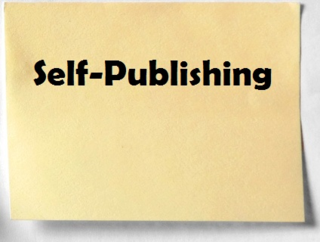 novel series certainly is a smart tactic when self-publishing fiction. After all, once readers like a character or universe, they���re likely to purchase other books in which they���re featured. Indeed, Smashwords founder Mark Coker noted that ���Series writers are among the successful at Smashwords��� and a quick check of the bestselling novels at Amazon.com will show at least a couple of books from a series in the top 20 at the same time.
novel series certainly is a smart tactic when self-publishing fiction. After all, once readers like a character or universe, they���re likely to purchase other books in which they���re featured. Indeed, Smashwords founder Mark Coker noted that ���Series writers are among the successful at Smashwords��� and a quick check of the bestselling novels at Amazon.com will show at least a couple of books from a series in the top 20 at the same time.
Some writers, however, sabotage their series by reducing its marketability. Despite excellent writing skills, they don���t follow readers��� expectations of what a series will deliver.
Perhaps the most egregious error writers make is not ensuring each book is a complete story with a clear beginning, middle and end. Instead, they write a 210,000-word novel and divide it into three books. Readers find this very dissatisfying. While a book in a series does not have to be about the entire story arch ��� such as telling everything that happened to a starship in a five-year mission ��� it does need to tell a self-contained story from that lengthy voyage; such a story might only cover a few days or weeks of the entire five years.
Another problem that can undermine your series is requiring that they be read in order. While your character may grow and develop with each passing novel, no one book in the series should require that a reader has first pored over the one before it. Readers likely can discover your series through any individual book in it rather than always stumble across the series��� first volume. They may not realize your novel is part of a series, and if they do, they probably won���t go searching for the first volume.
A final issue with series novels is length. About 70,000-80,000 words is plenty for an individual novel. If a reader is really hooked on your series, they���ll find that word count is too little and will want more. Go longer with the word count, and you risk burning them out on your character and series. In any case, whether writing a series or not, that length is what readers tend to prefer.
Professional Book Editor: Having your novel, short story or nonfiction manuscript proofread or edited before submitting it can prove invaluable. In an economic climate where you face heavy competition, your writing needs a second eye to give you the edge. I can provide that second eye.
<A HREF="http://ws-na.amazon-adsystem.com/widg... Widgets</A>
Related articles
 How many words is a novella?
How many words is a novella? Writing inspiration: Model a story
Writing inspiration: Model a story Try 'taster book' if new to self-publishing
Try 'taster book' if new to self-publishing
March 2, 2016
Changing definitions ��� not exactly a moot point
Language always 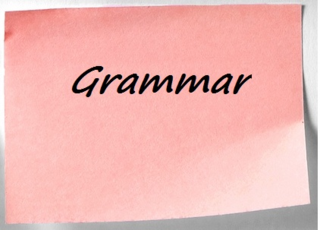 is in transition. The words we use go in and out of style while their definitions and pronunciations evolve over time. This is a glacial process, of course, and universal education tends slow it even further by fostering a standardization of vocabulary, spelling and grammar rules. But just as Shakespeare spoke differently than men of the Civil War who spoke differently than people of the early 21st century, so people in a few decades will speak differently than us.
is in transition. The words we use go in and out of style while their definitions and pronunciations evolve over time. This is a glacial process, of course, and universal education tends slow it even further by fostering a standardization of vocabulary, spelling and grammar rules. But just as Shakespeare spoke differently than men of the Civil War who spoke differently than people of the early 21st century, so people in a few decades will speak differently than us.
Among those words that is in transition is moot. Dictionaries and grammarians will tell you that the word means something is open to discussion or disputable. For example: Developing the city���s waterfront is a moot point.
Increasingly, though, moot is coming to mean superfluous, as in ���Just because you���re ���now sixteen��� is a moot point!��� her mother said.
So which is correct for moot? As with other words in transition, that depends on your audience. The more likely they are to know that you���re not following the standard definition, the less you should be willing to stray from it. When in doubt, be conservative with your usage.
Professional Book Editor: Having your novel, short story or nonfiction manuscript proofread or edited before submitting it can prove invaluable. In an economic climate where you face heavy competition, your writing needs a second eye to give you the edge. I can provide that second eye.
Related articles
 Craft powerful story by paying attention to milieu
Craft powerful story by paying attention to milieu Word in transition: Co-worker vs. coworker
Word in transition: Co-worker vs. coworker Serial comma: Use, don't use, or don't worry?
Serial comma: Use, don't use, or don't worry?
March 1, 2016
Four writing prompts: Confusion
Good stories 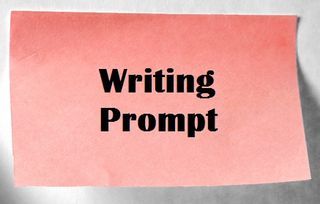 center on the clashing of characters��� goals and motivations. Sometimes a character���s goals and motivations arise from trying to escape a state of confusion. Here are four writing prompts for stories that involve the condition of confusion.
center on the clashing of characters��� goals and motivations. Sometimes a character���s goals and motivations arise from trying to escape a state of confusion. Here are four writing prompts for stories that involve the condition of confusion.
Man vs. nature
Your main character wakes up in an unknown location and is confused about how he got there. How does he go about determining where he is? How does he get home or to safety? And how did he end up at that location?
Man vs. man
The main character discovers a mysterious structure. What secrets does it resist yielding? How was it discovered? What threat does it pose to the main character and others? While not a human per se, the structure can be a character itself.
Man vs. society
A missing person from a cold case suddenly shows up. Where was this person all these years? What if those responsible for his disappearance want to keep this information secret?
Man vs. himself
What happens when the main character discovers his father isn���t the god or paragon of virtue that the perspective of childhood led him to believe? How does this lead to confusion in the main character about his sense of identity? How does he fund peace with the revelations about his father ��� and with himself?
Professional Book Editor: Having your novel, short story or nonfiction manuscript proofread or edited before submitting it can prove invaluable. In an economic climate where you face heavy competition, your writing needs a second eye to give you the edge. I can provide that second eye.
&amp;amp;amp;lt;A HREF="http://ws-na.amazon-adsystem.com/widg... Widgets&amp;amp;amp;lt;/A&amp;amp;amp;gt;
Related articles
 Questions to ask yourself when plotting a story
Questions to ask yourself when plotting a story Develop complex antagonist to maximize conflict
Develop complex antagonist to maximize conflict How to create an interesting villain for your story
How to create an interesting villain for your story
February 29, 2016
Don���t fully commit protagonist in opening scene
Typically 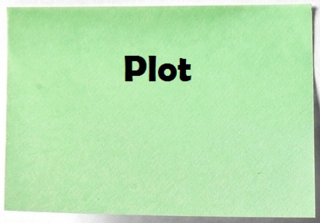 when a story starts, there is an out-of-whack event, an upsetting of the status quo that the main character must deal with. How the main character addresses this event forms the bulk of the story���s plot.
when a story starts, there is an out-of-whack event, an upsetting of the status quo that the main character must deal with. How the main character addresses this event forms the bulk of the story���s plot.
Sometimes, though, the main character is relucant to act. That is, he is not fully committed to resolving the issue.
For example, what if our protagonist comes to believe that something bad has happened to a neighbor, as she mysteriously hasn���t been seen for days. He files a report with the police and decides he���s washed his hands of it, has fulfilled his civic responsibility.
To ensure we have a story, though, something must occur that convinces the main character to become fully commited. This is variously known as the lock-in, the point of no return, and in a three-act structure as the Act One climax.
For example, after a cursory search the police turn up nothing and seem disinterested in investigating. For the lock-in, our protagonist might feel dissatisfaction with the lack of action and so decides to investigate on his own. Or perhaps the threat ramps up as he hears or sees suspicious activity at his neighbor���s house and so decides to investigate. Or possibly our protagonist has a need for self-redemption; maybe he once was a police detective who got bounced off the force when he screwed up an investigation and so wants to prove his mettle to his peers and to himself.
There are a variety of reasons why you might make your main character initially reluctant to act. First, it���s a great way to learn more about him, the villain, and their background without giving a lot of exposition. Further, plot-wise, getting your main character involved too early may not be believable when police or others are better equipped to address the problem. Lastly, it���s a good way to explore the story���s theme through development of the character. If fear, for example, holds back the main character from acting, this can be part of an examination of the theme of courage.
Professional Book Editor: Having your novel, short story or nonfiction manuscript proofread or edited before submitting it can prove invaluable. In an economic climate where you face heavy competition, your writing needs a second eye to give you the edge. I can provide that second eye.
&lt;A HREF="http://ws-na.amazon-adsystem.com/widg... Widgets&lt;/A&gt;
Related articles
 How to construct a scene in a story
How to construct a scene in a story Three potential ways to end your story
Three potential ways to end your story Use third - person limited for greater clarity
Use third - person limited for greater clarity Writing Prompt: Take your story forward
Writing Prompt: Take your story forward
February 28, 2016
Five Great Quotations about the Muse
���(The) muse 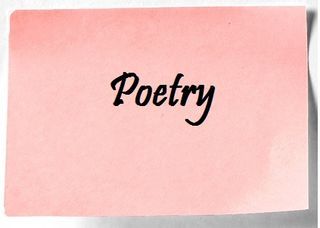 appears at the point in my writing when I sense a subtle shift, a nudge to move over, and everything cracks open, the writing is freed, the lanuage is full, resources are plentiful, ideas pour forth, and to be frank, some of these ideas surprise me. It seems as thought the universe is my friend and is helping me write, its hand over mine.��� - Amy Tan
appears at the point in my writing when I sense a subtle shift, a nudge to move over, and everything cracks open, the writing is freed, the lanuage is full, resources are plentiful, ideas pour forth, and to be frank, some of these ideas surprise me. It seems as thought the universe is my friend and is helping me write, its hand over mine.��� - Amy Tan
���Written words are divine footprints on earth.��� - Lailah Gifty Akita
���Muses are fickle, and many a writer, peering into the voice, has escaped paralysis by ascribing the creative responsibility to a talisman: a lucky charm, a brand of paper, but most often a writing instrument. Am I writing well? Thank my pen. Am I writing badly? Don���t blame me blame my pen. By such displacements does the fearful imagination defend itself.��� - Anne Fadiman
���There are, it seems, two muses: the Muse of Inspiration, who gives us inarticulate visions and desires, and the Muse of Realization, who returns again and again to say ���It is yet more difficult than you thought.������ - Wendell Berry
���To be a writer is to be the very best of assassins. You do not sit down and write every day to force the Muse to show up. You get into the habit of writing every day so that when she shows up, you have the maximum chance of catching her, bashing her on the head, and squeezing every last drop out of that bitch.��� - Lili St. Crow
Professional Book Editor: Having your novel, short story or nonfiction manuscript proofread or edited before submitting it can prove invaluable. In an economic climate where you face heavy competition, your writing needs a second eye to give you the edge. I can provide that second eye.
&amp;amp;amp;amp;lt;A HREF="http://ws-na.amazon-adsystem.com/widg... Widgets&amp;amp;amp;amp;lt;/A&amp;amp;amp;amp;gt;
Related articles
 Let powerful energy of inner muse guide you
Let powerful energy of inner muse guide you How long is needed to write a professional book?
How long is needed to write a professional book? Make tables readable in your self-published book
Make tables readable in your self-published book
February 27, 2016
Writing Affirmation: To write is to progress
All too often, 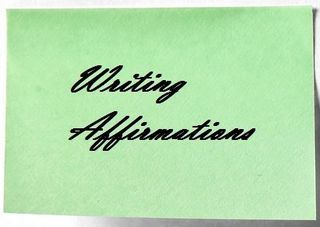 writers will read over their manuscript and then toss it down in disgust. Sure, they wrote a thousand words. Sure, there was a line or two here and there that sounded really good. But because the manuscript never matched the quality of her favorite authors or what she was aiming for writing no longer is pleasurable but becomes something to be avoided.
writers will read over their manuscript and then toss it down in disgust. Sure, they wrote a thousand words. Sure, there was a line or two here and there that sounded really good. But because the manuscript never matched the quality of her favorite authors or what she was aiming for writing no longer is pleasurable but becomes something to be avoided.
Procrastination comes in many forms ��� thinking up something else to occupy one���s time, promising to do it later then not keeping that promise, and a myriad of phony excuses for not starting. One thing is certain, though: The writer is not getting any closer to completing that book, and she���s not getting any better.
Simply put, you can only master your craft if you practice it. By writing every day, you slowly but surely improve the quality of your writing, just as if a runner practicing every day to become smoother, more efficient, and faster. Often without even realizing it, you incorporate effective styles and techniques used by writers you���ve read. You utilize strategies and advice read in writing guidebooks and blogs. You subconsciously mull over scenes and characters so that the next day your writing is ever more taut and evocative.
When you don���t write, your skills atrophy, just as certainly as the runner���s muscles soften and weaken when he doesn���t hit the track each day.
By not writing, you���ve allowed the wrong emotion to direct you down the wrong path. You���ve let fear dominate your writing. Unfortunately, often the fear of doing a task takes up more energy than simply doing it. Yet you can only strengthen your writing skills by practicing them, by working out at the notepad or the keyboard.
Don���t fret over the quality of writing on a day-to-day basis; just know that certainly, over time, it���s improving. And the next time procrastination-causing fear strikes, remember the words of author Sam Horn: ���I have never met an author who was sorry he or she wrote a book. They are only sorry they did not write it sooner.���
Professional Book Editor: Having your novel, short story or nonfiction manuscript proofread or edited before submitting it can prove invaluable. In an economic climate where you face heavy competition, your writing needs a second eye to give you the edge. I can provide that second eye.
<A HREF="http://ws-na.amazon-adsystem.com/widg... Widgets</A>
Related articles
 Writing inspiration: Read your favorite author
Writing inspiration: Read your favorite author Today's Writing Inspiration: Your first written sentence is the foundation of all of your dreams
Today's Writing Inspiration: Your first written sentence is the foundation of all of your dreams Write winning query letter to editors, agents
Write winning query letter to editors, agents
February 26, 2016
What to do in hour before your presentation
Rarely  do most authors just show up for a book reading or presentation and start delivering it. Like a professional athlete, you want to ���warm up��� before the actual show. Doing so can help ensure the presentation itself goes flawlessly.
do most authors just show up for a book reading or presentation and start delivering it. Like a professional athlete, you want to ���warm up��� before the actual show. Doing so can help ensure the presentation itself goes flawlessly.
��� Get plenty of rest. Don���t stay up late partying the evening before the presentation or drive all night to get there. If you���re awake, you���ll be more alert and in a better, upbeat mood during the presentation.
��� Avoid caffeine, sugar and alcohol before the presentation. These chemicals can exacerbate your nervousness. Instead, stick to water.
��� Dress appropriately. You don���t have to be dressed to the nines but look professional or at least match the part. For example, if you���ve written an outdoors book, show up in a nice pair of jeans and a button-down shirt; fishermen don���t wear a suit and tie when on the lake, after all.
��� Bring books and pens. Take with you more books than you expect you���ll need (you don���t want to leave any fans disappointed). Sign a few copies in advance. Carry a couple of additional pens in case the ink runs out. If you have electronic equipment, brings power cords, extension cords, and extra battries if needed.
��� Arrive with plenty of time to spare. Get to the location where you���ll be reading and signing books a bit early. You���ll need the extra time to set up and get comfortable.
��� Find the event���s organizer/host as soon as you arrive. Introduce yourself and have the host show you where you���ll deliver the presentation.
��� Set up as soon as you can. Getting your books, pens, laptop, banners/posters, and anything else you might need in just the right spot will ensure you can easily find them once the presentation begins. Check to ensure any electronics you have are working properly to avoid any technical snafus. Use the bathroom before the presentation.
��� Stroll around until you feel at home. Once the set up and potty break are done, walk around the room or store to get a feel for what the place is like. Familiarity breeds comfort.
��� Interact with the audience before the presentation. This helps you become more comfortable by creating a relationship, even if a minor one, with the audience and by building your confidence when others respond with interest to you.
Professional Book Editor: Having your novel, short story or nonfiction manuscript proofread or edited before submitting it can prove invaluable. In an economic climate where you face heavy competition, your writing needs a second eye to give you the edge. I can provide that second eye.
<A HREF="http://ws-na.amazon-adsystem.com/widg... Widgets</A>
Related articles
 Consider differences between paper, ebooks
Consider differences between paper, ebooks Three ebook formatting tips, Part VII
Three ebook formatting tips, Part VII Three ebook formatting tips, part IV
Three ebook formatting tips, part IV
February 25, 2016
Use consistent style on chapter, header titles
When writing 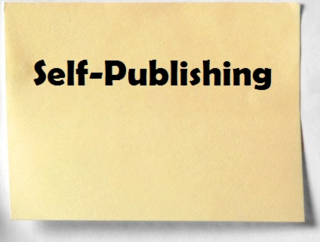 chapter titles and section headers in nonfiction books, you���ll want to use a consistent style. For example, if one section title is written as What Hiking Apparel to Buy for Children, but the next one is written as Where to buy hiking apparel, the styles are inconsistent as the former is capitalized but the latter is lowercased.
chapter titles and section headers in nonfiction books, you���ll want to use a consistent style. For example, if one section title is written as What Hiking Apparel to Buy for Children, but the next one is written as Where to buy hiking apparel, the styles are inconsistent as the former is capitalized but the latter is lowercased.
Few readers may notice that you're using inconsistent styles, but typographically the manuscript will feel messy to the reader...and the jump from messy appearance to messy content is not a difficult leap for most readers.
Generally, with chapter titles and section headers, you can use one of two styles: up style or down style.
Up style consists of capitalizing the first and last words in the title or headline and all ���major words��� in the title. An example is Five Ways to Boost Book Sales. Its benefit is that it tends to stand out more than down style, so if using a font size that's the same as or close to the text, the header won���t get lost. The disadvantage is that there���s disagreement in style guides over what is a major word. Usually articles (a, an, the), prepositions, and coordinating conjunctions (and, but, or, for, nor) are lowercase. While the Chicago Manual of Style says prepositions should be lowercase unless the first word, the Associated Press stylebook says to capitalize them. To wit, the above example in this paragraph is written using CMOS while AP would capitalize to.
Down style requires that only the first word of the title and any proper nouns be capitalized. An example is Five ways to boost Kindle ebook sales. It���s benefit is that it offers easier rules to follow than with up style, and there���s no argument over which is the first word or a proper noun. The major disadvantage is that it tends to get lost if the font size is the same as or similar to the text's font size. Of course, this disadvantage can be overcome by centering the header, increasing its font size to at least 6-12 points greater than the text, or by giving the header a different color than the text.
A final note: Either style is fine to use. Just choose one and stick with it.
Professional Book Editor: Having your novel, short story or nonfiction manuscript proofread or edited before submitting it can prove invaluable. In an economic climate where you face heavy competition, your writing needs a second eye to give you the edge. I can provide that second eye.
&amp;amp;amp;amp;amp;lt;A HREF=&quot;http://ws-na.amazon-adsystem.com/widg... Widgets&amp;amp;amp;amp;amp;lt;/A&amp;amp;amp;amp;amp;gt;
Related articles
 Capitalize nouns of direct address
Capitalize nouns of direct address Serial comma: Use, don't use, or don't worry?
Serial comma: Use, don't use, or don't worry? Make tables readable in your self-published book
Make tables readable in your self-published book Five Great Quotations about the Writing Process
Five Great Quotations about the Writing Process Writing Inspiration: Seek another's advice
Writing Inspiration: Seek another's advice



